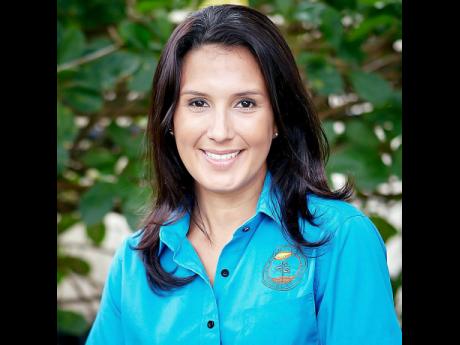Earth Today | Breakthrough in environmental rights for the Caribbean
THE REGIONAL agreement on access to information, public participation and access to justice in environmental matters, otherwise known as Principle 10, will open for signatures and ratification by countries, including Jamaica, at the UN General Assembly in September.
This follows its adoption in San Jose, Costa Rica, earlier this month, a development welcomed by environmental stakeholders locally.
"Twenty-four countries of Latin America and the Caribbean adopted this agreement, which has standards in it for their citizens to obtain access to environmental information, to participate in decisions about the environment, and to have justice in environmental matters," said attorney Danielle Andrade Goffe, former legal director and now board member at the Jamaica Environment Trust (JET).
"It is hugely significant. It will mean overhauling the way that Jamaica deals with environmental issues and allowing the citizens to be engaged in environmental decisions. There was talk for years about introducing legislation, about public participation in environmental impact assessments, and now, we have an international, legally binding agreement ... The impetus is on them to introduce these laws and give impetus to the agreement. So, hopefully, the Government will sign and ratify this agreement," she added.
Independent blogger and environmental advocate Emma Lewis agreed.
"This is very welcome news, truly groundbreaking for civil society and conservationists across the region. Those brave defenders of environmental rights who have lost their lives would be overjoyed. I hope that regional governments are now ready to protect their own citizens and the lands they seek to preserve from predatory corporations, with laws they are prepared to enforce. Lip service and moral commitments will no longer suffice," she said.
JET boss gives agreement thumbs up
Suzanne Stanley, Chief Executive Officer for JET, also welcomed news of the agreement.
"Although JET has observed some improvement in access to information and public participation in environmental decision-making over the years, we still have a long way to go to in Jamaica. We hope that the implementation of Principle 10 at the local level will serve to strengthen Jamaica's related legislation and policies, and improve the way environmental decisions are made on the ground," she said.
"The treaty also speaks directly to the protection of environmental defenders. Of course, this is particularly significant for JET as we engage in our environmental advocacy campaigns. We look forward to seeing how this will translate in the local context and hope that these protections will encourage others to speak out on environmental issues," he added.
Andrade said that to her mind, there are enough incentives for countries and, in particular, Jamaica, to ratify.
"For example, it will reduce social conflict. Most of the time, there is a development and there is a group protesting about it because they have been denied their procedural rights ... When you are able to enjoy and exercise procedural rights in a meaningful way, you are reducing social conflict," said the attorney.
There are also capacity-building benefits to be enjoyed in the effort to raise standards.
"It is also my understanding that these are things that are not outside of the realm of what the Government considers reasonable. Throughout the negotiations, their approach is that 'we are going to be negotiating this as though it were legally binding' and that either it is something that they have in the law or something they have contemplated they would want to introduce into it. So I don't see why there should be any barriers to the Government signing and ratifying it," she said.


